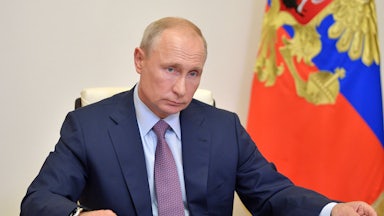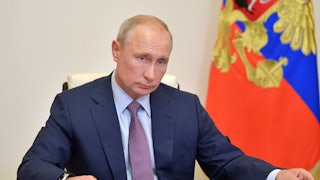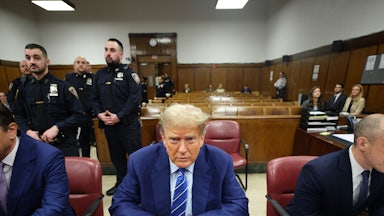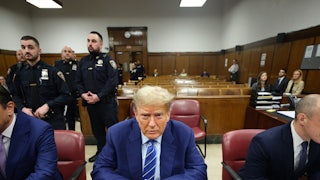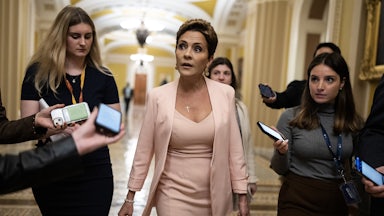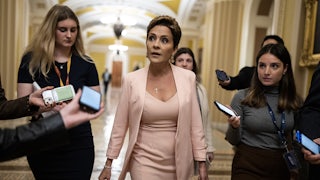Joe Biden will almost certainly be the last president whose internal newsreel is filled with memories of Russia from Joseph Stalin to Vladimir Putin. He was born during World War II, when old “Uncle Joe” was our ally against Hitler. And he first visited Moscow as a senator in 1979, during the ideological rigidity of the Leonid Brezhnev years.
That firsthand understanding of the arc of history from brutal Stalinist communism to harsh authoritarianism was on display Wednesday during Biden’s post-summit press conference in Geneva. Several times Biden bristled when asked about the personal aspects of his relationship with Putin. “This is not about trust,” Biden said with a hint of weary exasperation in his voice. “This is about self-interest and the verification of self-interest.”
That is a much tougher standard than Ronald Reagan’s endlessly repeated translation of a Russian proverb: “Trust but verify.” With reformer Mikhail Gorbachev, who reputedly grew impatient with this Reaganite catchphrase, trust was indeed possible. But self-interest is the only standard that ever matters with the cynical Putin, who said during his own Geneva press conference, “In life there is no happiness. There’s only the specter of happiness.”
During his half-hour question-and-answer session, Biden kept returning to the pragmatic view that the goal of face-to-face diplomacy is not some breakthrough based on personal chemistry—or, as the president put it, “a kumbaya moment.” Instead, Biden stressed in his opening statement, “I wanted President Putin to understand why I say what I say, and why I do what I do, and how we’ll respond to specific kinds of actions that harm America’s interests.”
This approach isn’t romantic. There was no George W. Bush trying to “get a sense” of Putin’s “soul.” Or even Secretary of State Hillary Clinton in 2009 flamboyantly presenting Russian Foreign Minister Sergey Lavrov with a red “reset” button.
U.S.-Russian history is filled with epic misreadings of rival leaders. At the 1961 Vienna summit, Nikita Khrushchev concluded that the newly inaugurated John Kennedy was overmatched on the world stage. Acting on this misjudgment, Khrushchev felt emboldened enough to station nuclear missiles in Cuba, which led to the chilling tensions of the 1962 Missile Crisis, in which the young president stared Khrushchev down.
Biden’s biggest achievement in Geneva may have been to normalize relations with Moscow while still appearing tough both to a global audience and to voters back home. In the most stirring portion of his prepared remarks at the press conference, Biden explained how he mixed idealism with realpolitik in his negotiating session with Putin: “I also told him that no president of the United States could keep faith with the American people if they did not speak out to defend our democratic values.… That’s just part of the DNA of our country. So, human rights is always going to be on the table.”
Traditionally for America, human rights have always been on the table, as long as the table was empty of all other considerations. But dating back to the Cold War, when the CIA worked overtime to overthrow democratically elected left-leaning governments and America embraced useful dictators, this rhetorical commitment to human rights was tinged with massive hypocrisy. And the hypocrisy did not end with the collapse of the USSR: On Wednesday, Putin couldn’t resist reminding the world of the CIA’s aggressive use of black sites during the Bush-Cheney years.
Biden’s European tour raised the hope that this time around an American president was unswerving in his commitment to global democratic values. Part of it is Biden’s keen awareness of how vulnerable American democracy has become in the age of Donald Trump and the Republican assault on free elections. In a particularly low moment during Putin’s press conference, the Russian president claimed that Ashli Babbitt, who was leading the charge of insurrectionists breaking into the House of Representatives on January 6, “was simply shot on the spot by the police, although they were not threatening the police with any weapons.” (She broke through a window and was part of a group that defied orders to stop in charging toward the speaker’s lobby; federal prosecutors cleared the officer who shot her.)
The protection of democracy is all interconnected, from the imprisonment of Alexei Navalny in Russia to the bogus election recount in Arizona and the curtailment of voting rights in Georgia. Obviously, the scale is infinitely different, but the underlying principles are analogous.
In similar fashion, during the late 1950s and early 1960s, America was repeatedly embarrassed by the mistreatment of ambassadors from newly created African states when these diplomats dared venture into the segregationist South. While it was certainly not the strongest moral argument for civil rights, the notion that segregation was costing America votes at the United Nations and prestige in the nonaligned world did register with some anti-Communist legislators on Capitol Hill.
Nothing better conveys the ideological confusion of the post-Trump Republican Party than attitudes toward Russia. A CBS News poll, released on the eve of the Geneva summit, found that 57 percent of Republicans called Biden “too friendly” to Russia, while another 24 percent of GOP voters viewed him as “too hostile.” It was as if these Republicans were suffering from ideological whiplash as they couldn’t decide whether to go with their inner Reagan or their inner Trump. All they really knew was that whatever Biden was doing, they were against it.
Without saber-rattling or empty threats like Barack Obama’s oft-ignored “red lines,” Biden managed to convey unsentimental firmness in his first turn on the world stage. While foreign policy at the moment is not a 2022 voting issue, Democrats have never prospered by appearing weak. Biden knows this from personal lore: The maternal (Finnegan) branch of his family was filled with ardent Harry Truman Democrats because of his toughness toward communism in the 1940s.
Putin, that great political survivor, has now negotiated with five American presidents. But it seemed evident from the Russian leader’s remarks in Geneva that Biden was the one who had won his grudging respect. Putin called him “a well-versed and experienced politician.” But more than that, the Russian leader said, “I believe that we spoke the same language.… We defend the national interests of our countries, and these relationships are always based on pragmatism.”
Ideally, the Geneva summit will produce something more tangible for U.S.-Russian relations than just the formal return of two ambassadors who had been sent home for consultations as part of an ancient diplomatic game of empty gestures. An implicit cybersecurity agreement based on mutual self-interest (“We won’t attack your pipelines if you don’t attack ours”) would be an obvious starting point.
Nothing dramatic happened in Geneva other than perhaps a welcome step away from continued Russian mischief-making. But as John Kennedy said in 1963, in a TV address to the nation about the Nuclear Test Ban Treaty with the Soviet Union, “According to the ancient Chinese proverb, ‘A journey of a thousand miles must begin with a single step.’”

